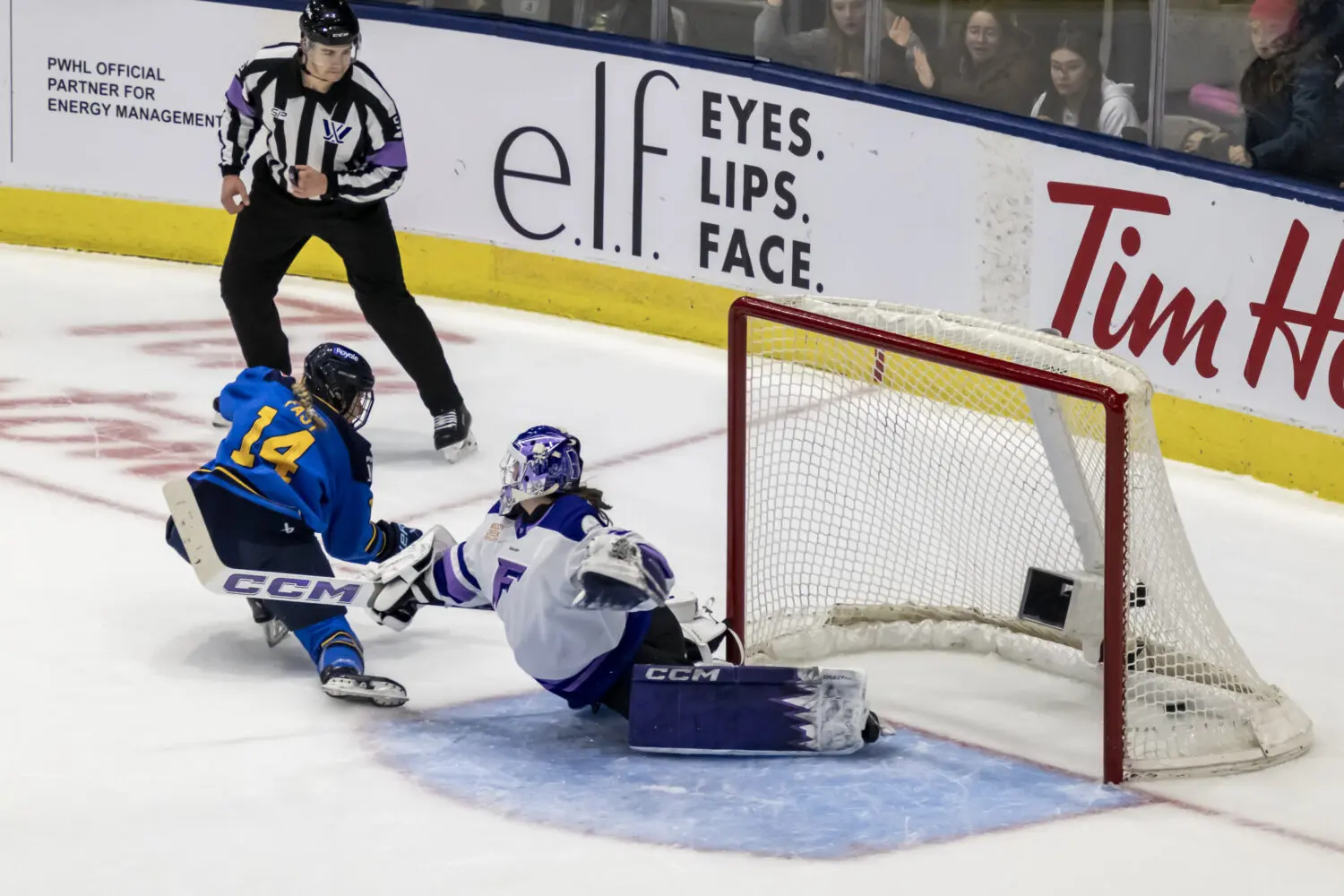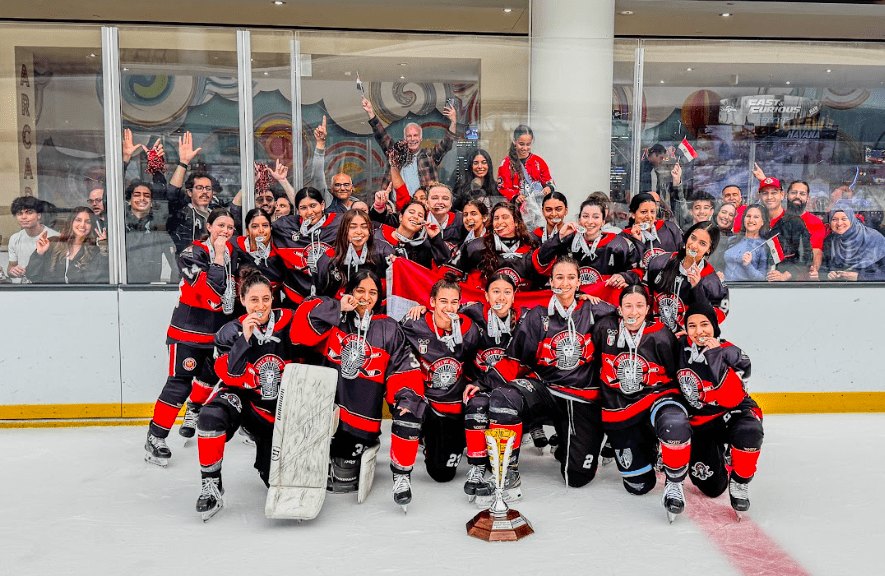As the growing sport of women’s ice sledge hockey continues to attract new competitors, the arrival of highly accomplished and remarkable athletes only adds to its allure. Having recently attended the Canadian national women’s team training camp, Jessica Matassa brings a world-class athletic background.
Currently, Matassa is a member of the Windsor-Essex Ice Bullets, part of its intermediate roster. Three other women join her on the roster, including Ashley Goure, one of the charter members of the Canadian national team. They both call Genna Norton, who has also played for the national team, and Heather Stewart teammates on a roster that consists of both male and female players.
“Ashley Goure encouraged me. She said ‘You have to try out for the national team.’ We play on a mixed team in Windsor. There were no other girls, so it is nice to have another female to play with. She is definitely a mentor. When I started, she shared her insights and showed me some tricks.”
While Ashley Goure is one of the charter members of the Canadian national women’s ice sledge hockey program, she was impressed with Matassa’s talents. In commenting on her on-ice efforts, Goure recounted,
“We have played together for several years and I thought it would be a good opportunity to play with girls (at the camp). She gives a lot of fight and a second effort. She drives for the puck and is fast.” Goure also added, “It is exciting to have her here (at the camp). It is not just a huge step for her, but for the women’s team too. Having more people involved, it helps others understand what out sport is, and how much it takes to get there.”
While Matassa was named to the national team’s roster for the 2015-16 season, she acknowledges that the quality of talent was exceptional. Although her first day at training camp represented a baptism of fire, it made the effort so much more worthwhile. “Today was tough. For sure, the average caliber of each athlete is much higher. It also makes it fun.”
The chance for Matassa to contribute to the growth of the sport and build on the legacy of those who skated before, represents a great milestone,
“Making the team was definitely an honor. To see the development of the sport, I would love to be a part of it. History is being made, not just in Canada, but throughout the world. To be recognized by the IPC is great. It would be nice to be on the team that hopefully ends up in the Paralympics.”
Having represented Canada on some of the world’s biggest sporting stages, Matassa, who has endured spina bifida since childhood, first carved her athletic legacy in wheelchair racing. Competing in the T54 Classification, she competed at the 2004 Athens and 2008 Beijing Paralympic Games. In Athens, she would capture the bronze medal in the 800-meter race. In addition, she also competed in the 200-meter and 400-meter races at both Paralympic Games, respectively.
“It was an awesome moment (in Athens). I was only 18 when I won the bronze medal. I was not expected to make the final. I ended up getting third, and it was the second fastest ever recorded time for a Canadian.”
Balancing her athletic career with academic obligations, studying Chemical Engineering at St Clair College, she was among an accomplished of Canadian Paralympic athletes who retired from active competition in 2010. Such a class of athletes included Charles Allen, Dean Bergeron, Mark Ledo, Nicolas Macrozonaris, Jacques Martin and Gary Reed.
While ice sledge hockey is an extension of her remarkable athletic accomplishments, it also represents her desire to compete. Such desire was never more evident than in 2006. Sadly, she had to endure a series of six surgeries in order to fix complications from an initial operation. Battling infection and meningitis, a total of 146 days was spent in hospital, potentially jeopardizing her racing career.
Despite being unable to compete in 2006, her finest hour was to come. Through the support of friends, family, coaches and medical staff, she safely navigated the rough waters of such an arduous journey, managing to train again in 2007.
Such toughness only made the journey ahead that much more satisfying and rewarding. The 2007 Para Panamerican games in Rio de Janeiro, Brazil represented a great tale of redemption and perseverance. Re-establishing herself as a world-class athlete, she would capture the gold in all three of her events: 200m, 400m and 800m.
Adding to her remarkable athletic legacy was the fact that she competed in the 2009 Boston Marathon, finishing fifth overall among the female wheelchair competitors. Wakako Tsuchida of Japan finished first with a time of 1:54:37, while Matassa was the top Canadian with a time of 2:31:53, managing an admirable finish despite suffering a flat tire along the way. Taking into account how grueling a race it can be for the most conditioned able-bodied athlete, Matassa’s ability to finish in the top five is testament to her focus and determination. A combination of long and short steep climbs made it a very demanding race, able to challenge any athlete physically and mentally.
As ice sledge hockey represents a new and exciting chapter for Matassa, she believes that if female athletes want to try and excel at more than one sport, that they should be able to. While she acknowledges that there is still a learning process, as her game is now elevated to the international level, she acknowledges that some of the values instilled in her as a wheelchair racer can translate to success,
“Once an athlete, always an athlete. I have that drive and it translated into being able to pay attention to details, and the flat out ability not to quit. Those are the same tricks that I used for wheelchair racing.
I still need to develop my skills but at the very least, I like being active. I like the sport and it is a good to opportunity to be able to do this. If you really enjoy doing it, it makes it much more enjoyable at the same time.”
“All quotes obtained first hand unless otherwise indicated”
Photo: Matassa (left) mounting the sled for Team White during an intrasquad game at the Canadian national women’s ice sledge hockey training camp. Credit: Mark Staffieri
[adrotate group=”1″]
Related Articles
Categories
Recent Posts
[adrotate group=”2″]





